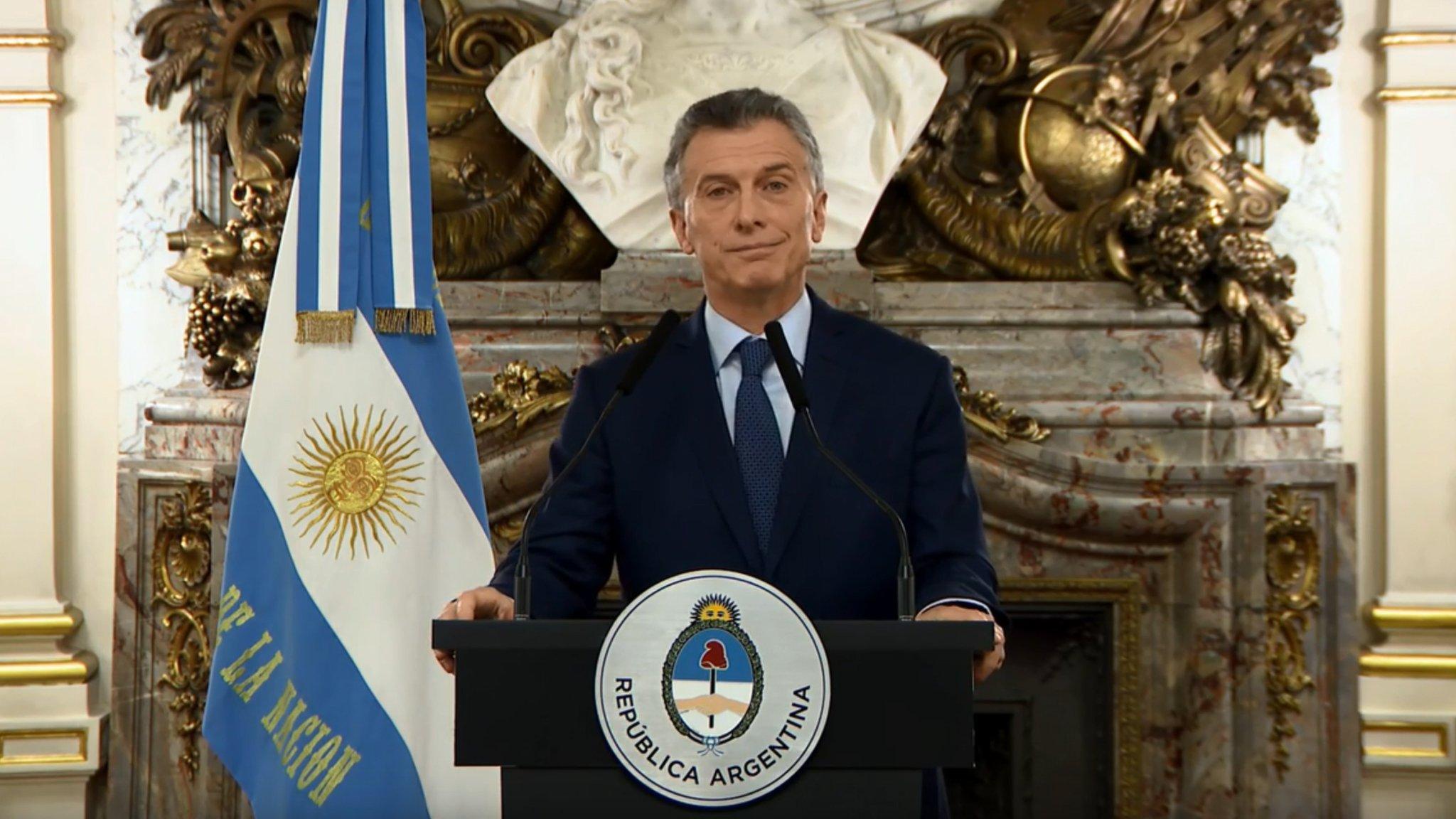Argentina's central bank boss Luis Caputo quits after three months
- Published
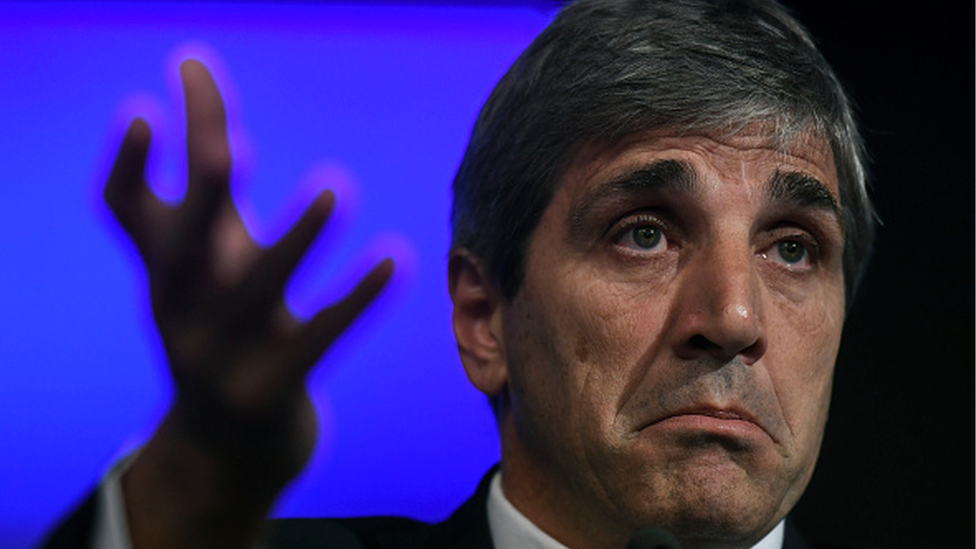
The head of Argentina's central bank has resigned amid reports of a row over policies to restore confidence in the country's ailing economy.
Luis Caputo had only held the post since June, and the surprise resignation sent the peso falling further against the US dollar.
A statement said he quit for personal reasons and will be replaced by deputy economics minister Guido Sandleris.
Argentina is finalising a $50bn bailout from the International Monetary Fund.
With Argentina in recession, interest rates at 60%, and the peso's value halving this year, the country needs the IMF loan to bolster confidence in the economy.
President Mauricio Macri is in New York this week for a United Nations meeting, but was due to meet Wall Street financiers and potential investors.
When Mr Caputo, a former finance minister, was appointed three months ago, there were questions about the government's commitment to the central bank's independence.
A statement from the bank said: "This resignation is due to personal reasons, with the conviction that a new agreement with the International Monetary Fund will re-establish confidence in the fiscal, financial, monetary and exchange rate situation."
However, the news sparked a further 4% fall in the peso, while the country's main share market fell more than 5% at the open.
Argentina's Ambito Financiero financial newspaper reported that there may have been differences between Mr Caputo and finance minister Nicolas Dujovne. It is thought that Mr Caputo did not play a central role in the IMF negotiations.
Last week the government announced that Argentina's economy shrank by 4.2% in the second quarter, its sharpest quarterly contraction since 2014.
The decline was accompanied by a steep fall in exports, after a drought hurt the country's agricultural sector.

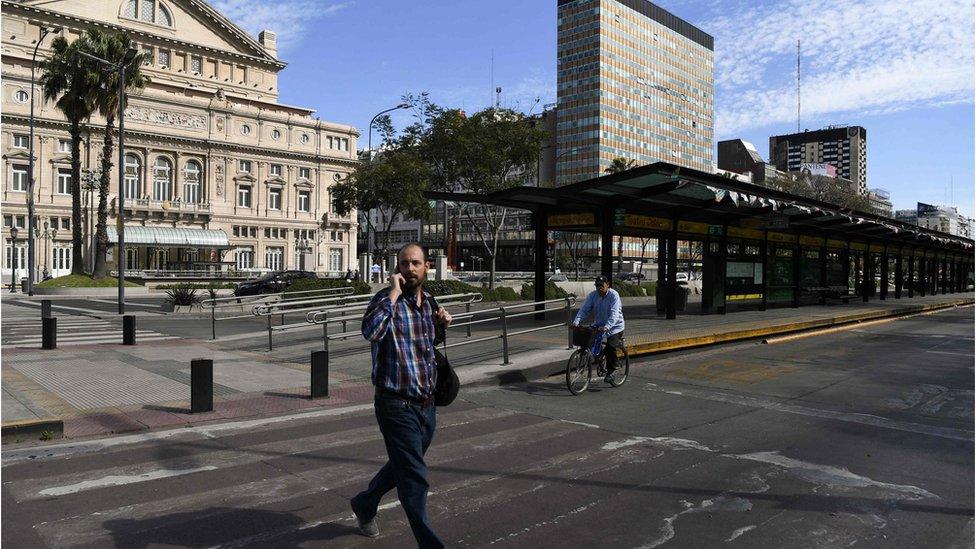
A 24 hour general strike on Tuesday in Argentina meant no public transport or taxis were running
Analysis: Daniel Gallas, BBC South America business correspondent
These are crucial days for the future of Argentina.
The country's currency is suffering from a major confidence crisis that could potentially be averted if the government secures backing from the IMF and pushes through with some of its economic reforms.
But questions have also been raised about lack of leadership.
Mr Macri has been criticised for announcing the IMF deal on television last month before it was actually negotiated in Washington.
There are reports of backstage disputes within his economic team, which gained traction with the resignation of Mr Caputo.
While the deal is not finalised, markets are operating more on rumours than on news. Some say Argentina could get extra funds from the IMF.
Meanwhile, the opposition is gathering support in the streets with a 24-hour strike on Tuesday that could be just a taste of what lies ahead for Argentina.
- Published19 September 2018
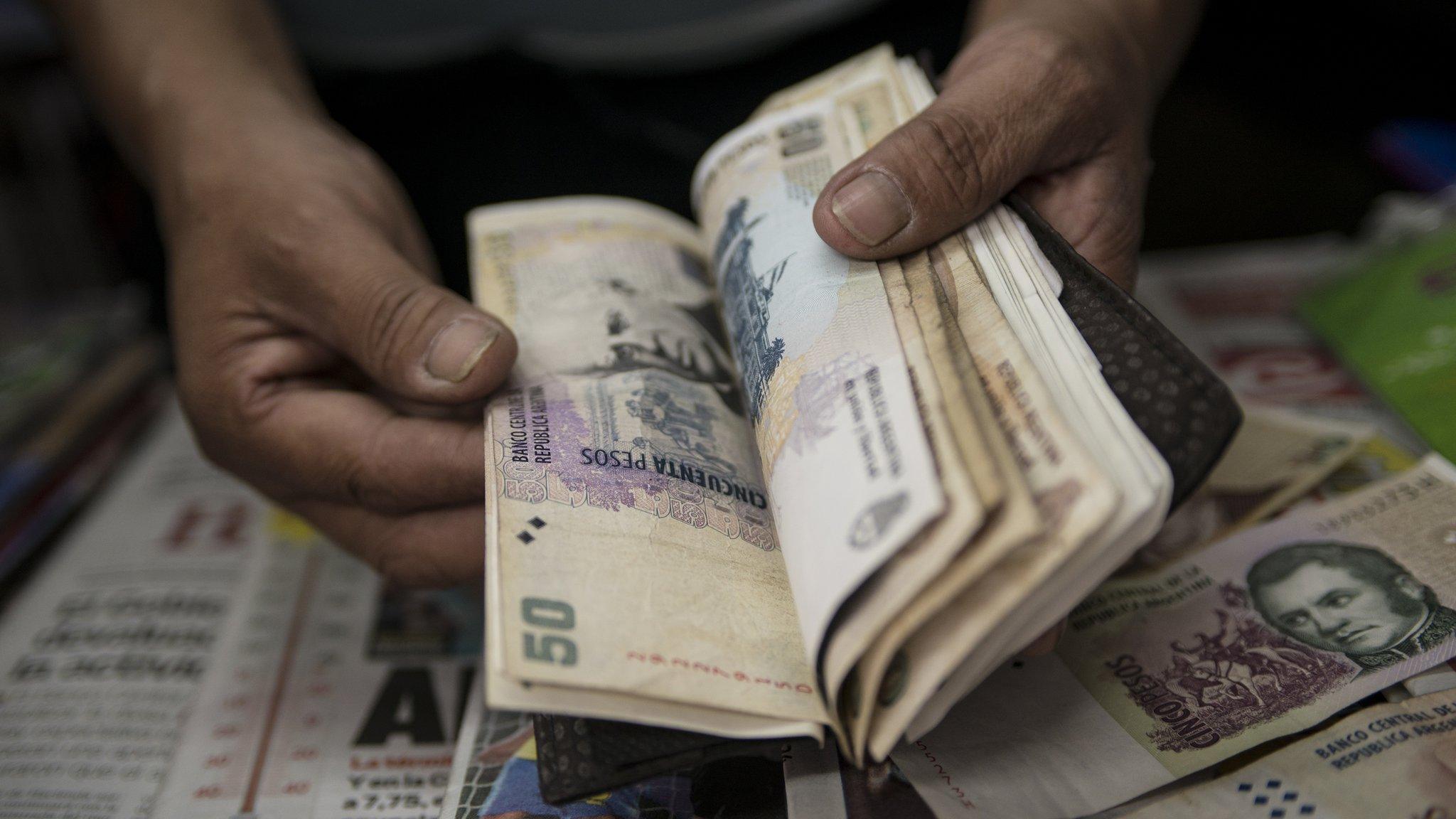
- Published9 September 2018
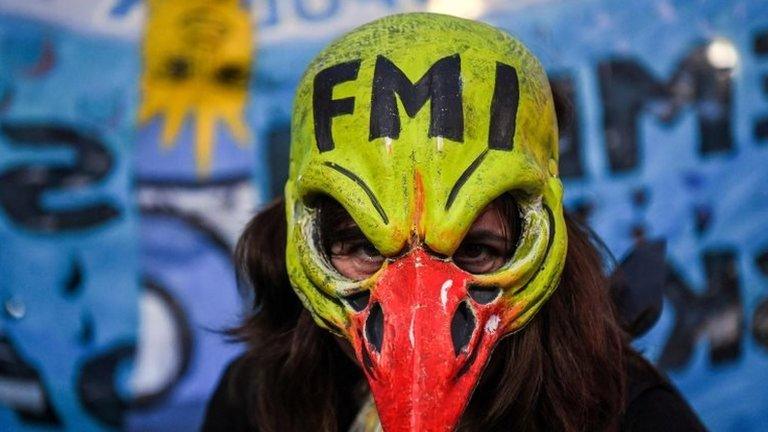
- Published3 September 2018
